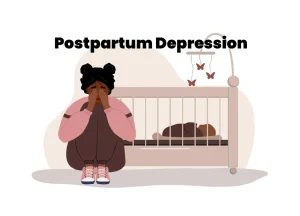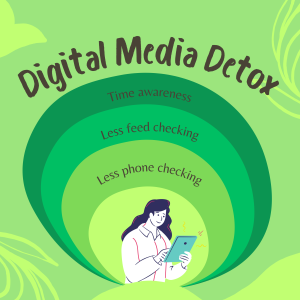For a long time, people have had some opinions about mental health problems. Most of these opinions are however not based on accurate information, but on stereotypes and suspicions, thereby leading to a cycle of stigma and discrimination.
Here are some of the stereotypes and misconceptions people make.
1 Myth: Mental problems are uncommon.
Fact: According to the WHO, an estimated 1 in 4 people in the world will be affected by mental or neurological disorders at some point in their lives.
Currently, 450 million people are experiencing such conditions. As the WHO explains, mental disorders are “among the leading causes of ill health and disability worldwide.”
2 Myth: Mental health problems do not affect me.
Fact: Mental health problems affects everyone.
The World Health Organization reports that one in four Nigerians (about 50 million people) suffer from some sort of mental illness. Nigeria has Africa’s highest caseload of depression and ranks 15th in the world in the frequency of suicide. Based on this report, it can be deduced that someone we know or love is experiencing some sort of mental illness.
3 Myth: Children don’t experience mental health problems.
Fact: Children may show early warning signs of mental health concerns. These mental health problems are often clinically diagnosed and can be a product of the interaction of biological, psychological, and social factors.
Most mental health disorders are first visible during childhood, usually before a child turns 14 years old. Unfortunately, most of the children are not able to get the right treatment. Parents sometimes misinterpret mental health symptoms in children and as such, do not seek professional intervention.
4 Myth: Having a mental illness means you are “crazy”.
Fact: Having a mental illness is synonymous to having any other illness such as diabetes, or hypertension. It does not mean one is crazy, but that one is human and vulnerable to sickness. It shows that one has an illness with symptoms that require medical management.
5 Myth: People with mental health needs cannot work productively.
Fact: Someone living with severe mental health distress may have difficulties carrying out regular work. However, individuals with mental health problems can be just as productive as other employees.
When persons experiencing mental health problems receive effective treatment and professional intervention, they are able to report increased productivity, good attendance, and punctuality at their work place.
6 Myth: People with mental health problems are commonly violent and unpredictable.
Fact: Most of the people with mental health problems are no more likely to be violent than anyone else.
Most people with mental illness are not violent. In fact, they are more likely to be victims of violent crime than the general population. Only about 3%-5% of violent acts are attributable to persons with severe mental illnesses. There is a high probability of you knowing someone with a mental health problem without you realizing it, because people with mental health problems are active and productive members of our communities.
7 Myth: Mental health problems are mostly caused by weakness or flaws in personality
Fact: Many factors can contribute to mental health distress, but being lazy or weak has nothing to do with mental health. Such factors could be biological (in terms of genes, physical illnesses, injury or brain chemistry), family history of mental illness, or adverse life experiences (such as trauma or abuse).
Stating that mental health problems are a sign of weakness is synonymous to saying that having a fractured ankle is a sign of weakness. Both are illnesses that require medical attention, and not a sign of poor or flawed character.
8 Myth: Persons experiencing mental health problems can easily “snap out of it” if they want.
Fact: Many people need help to get better, and cannot just snap out of it like the switch of a button. Mental disorders are medical conditions and only those experiencing it truly know how it feels. The severity of symptoms can vary due to a number of factors. For some types of mental disorders, the symptoms are internal, while for other conditions, symptoms result in behaviors that can be clearly visible to others. People with mental health problems can get better with professional help.
9 Myth: Once a person develops mental health problems, there is no hope for recovery. It is permanent.
Fact: A mental health diagnosis is not a death-sentence. People’s experiences with mental health distress are different. Studies show that people with mental health problems get better and many recover significantly. A person with mental health needs is said to have achieved recovery when they can live, work, learn, earn, and participate fully in their communities. There are treatments, services, and community support systems available to help them, and they work.
In Lagos State, there is one federal neuro-psychiatric hospital; two (2) teaching hospitals with robust behavioral health departments (LASUTH) and (LUTH); five (5) state general hospitals with functioning behavioral health departments; 57 primary health centers with trained physicians in psychological first-aid, a wellness center for Lagos State Civil Service employees and a tele-behavioral health emergency helpline called the Lagos Lifeline. Within these facilities are a multidisciplinary team of mental health professionals, including psychiatrists, psychologists, social workers, and psychiatric nurses who are in place to help nurture the patient back to recovery.
10 Myth: Therapy and self-help are a waste of time. Why not just take a pill?
Fact: Treatment for mental health problems could include medication, therapy, or both. The treatment option however varies on factors including the type of mental health distress, the severity of the symptoms and the nature of the individual experiencing it. Individuals work with the mental health professional to determine the best and most effective treatment options.
11 Myth: Psychiatric medications are bad and addictive.
Fact: Medication used for the treatment of mental health disorders are not harmful. Just like any other challenging medical condition, medication can be necessary.
Just as a person with diabetes will need to take insulin constantly to manage their health, a person with severe medical conditions may need to take some medication consistently to manage their well-being. Medication helps ease symptom to enable a person function normally.
12 Myth: There is nothing much I can do for a person with a mental health problem.
Fact: Social support is an integral part of mental health intervention. Friends and loved ones can make a big difference in providing social support to a person experiencing mental health problems. They can provide such support as influencing the person to get professional treatment and care; reach out to the person and let them know that they care; treat them with respect and dignity, without criticism and judgement; learn and share facts about mental health with them; help them access mental health services.
13 Myth: Only persons without family or friends need therapy.
Fact: There is a difference between formal and informal support. Social support from family and friends can help a person with mental illness, but this support alone cannot help in the long run. Mental health professionals are trained in addressing issues constructively and employing the most effective evidence-based intervention, according to the symptoms presented.
Also, not everyone is comfortable with opening up entirely to their closest friends. Some will rather open up to a trained professional who will maintain confidentiality and objectivity, and will provide individual-focused help which friends and family may not be able to.
14 Myth: It is impossible to prevent mental illnesses.
Fact: Prevention is an important part of mental health promotion. It involves focusing on addressing the known risk factors, such as exposure to trauma or abuse. Promoting social and emotional well-being also leads to improved quality of life. Looking into one’s family history to detect any past experience of mental illness will help a person avoid triggers. It will also go a long way in preventing a person from coming down with a mental health problem.
For example, if a family history shows one or more persons with substance abuse disorder, an individual in this family can prevent a mental problem by avoiding substances and alcohol, and will find ways to promote his/her mental well-being.
15 Myth: People with mental illness should be isolated from the rest of the community.
Fact: Most people with mental health distress do not need hospitalization, but only require outpatient care. Others may have hospital stays, depending on the severity of their symptoms. Living amongst their community members, and social support networks increases the chances of improvement in treatment and recovery.






